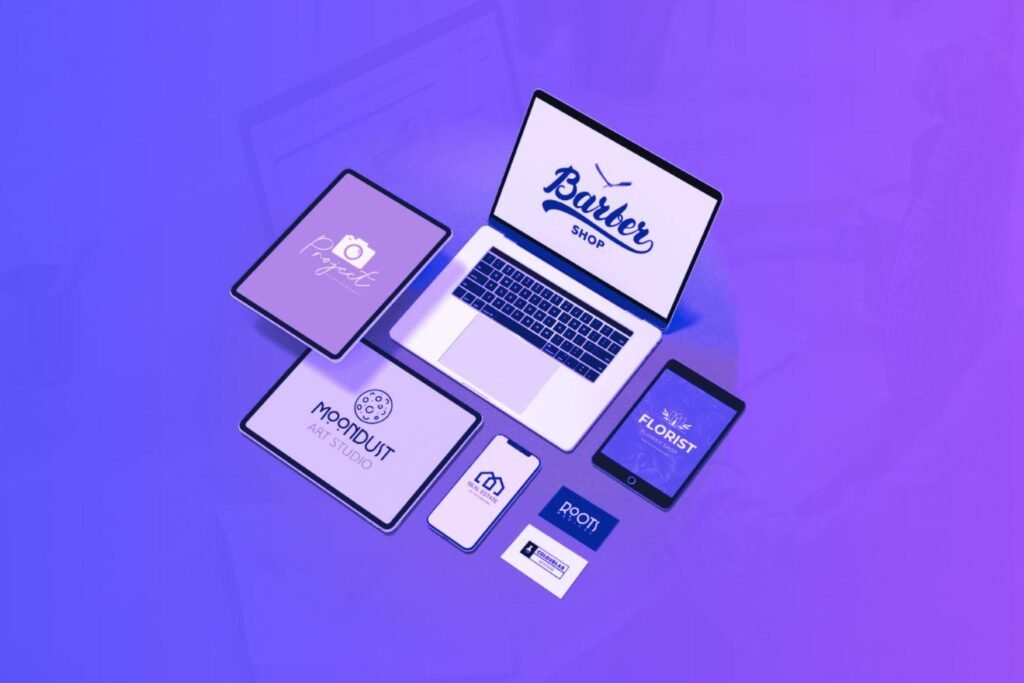Have you ever wondered if affiliate marketing is really worth the hype?
It seems like everyone’s talking about it, claiming easy money and freedom. But is it truly as profitable as it sounds, or is it just another online trend?
It’s important to know the truth if you’re thinking about affiliate marketing as a side hustle or a full-time gig.
Affiliate marketing can be a lucrative opportunity, but it’s not a guaranteed fast track to success.
In this post, I’ll break down the facts so you can decide if affiliate marketing is worth it. Let’s take a closer look!
Is affiliate marketing worth it?
Affiliate marketing can be a solid way to earn passive income, but it’s not for everyone.
Essentially, affiliate marketing involves promoting someone else’s product and earning a commission for each sale or lead you generate.
It sounds simple, but success takes time and effort. And it needs a thoughtful strategy.
For example, simply posting links won’t cut it. Squeeze pages and content marketing, like blogs or YouTube reviews, often drive better results.
Aside from good strategy, you need experience, expertise, and unique insights in your niche to see good results. If your niche has a high EPC, it will be the icing on the cake. Let’s take a detailed look at all these factors to find the answer to the question “Is affiliate marketing profitable?”.
You have experience and expertise in your topic
Affiliate marketing is worth it when you have real expertise in your field. Your knowledge helps you recommend useful products, making your promotions more trustworthy.
Unlike random endorsements, expertise-based recommendations build credibility and lead to better conversions.
By sharing real insights and only promoting what you believe in, you can turn affiliate marketing into a sustainable income stream.
You don’t expect overnight success
Affiliate marketing is a long-term endeavor that requires patience and consistent effort. Expecting immediate results can lead to disappointment. Instead, focusing on building quality content and nurturing your audience over time is key.
For instance, Zac Johnson, a seasoned affiliate marketer, started his journey in high school by creating a celebrity directory with Amazon affiliate links.
This initiative generated six-figure sales. So, if you are wondering “Is affiliate marketing worth it?”, this example showcases its potential when approached with dedication.
Similarly, the founder of Investor Junkie began the blog in 2009, dedicating two years before it generated significant income. This commitment led to the blog’s sale in 2018 for $6 million.
These examples highlight that affiliate marketing is profitable, but success doesn’t happen overnight. It requires a strategic mindset, quality content, and, most importantly, time.
By setting realistic expectations and committing to the process, you can build a sustainable income stream through affiliate marketing.
You have unique insight into your niche
Affiliate marketing becomes valuable when you leverage your unique insights in a specific field. Your deep understanding allows you to recommend products or services that truly benefit your audience, enhancing trust and engagement.
Let’s take Jeremy Schoemaker, known as “ShoeMoney,” as an example to see if affiliate marketing is worth it. ShoeMoney utilized his expertise in online marketing to create a successful affiliate marketing business.

He founded NextPimp.com, attracting an average of 150,000 unique views per day, and later launched AuctionAds, which won eBay’s “Most innovative application-buyer” award.
His journey underscores the power of applying unique insights to affiliate marketing.
This case demonstrates that applying your unique insights can lead to meaningful success in affiliate marketing.
Having dealt with the question “Is affiliate marketing profitable?” before, I can say that by focusing on your strengths and understanding your audience’s needs, you can create genuine value and build a sustainable income stream.
Your niche has a high EPC
Affiliate marketing is worth it if your niche has a high EPC (earnings per click).
EPC measures how much you earn each time someone clicks your affiliate link, and higher EPC means more potential income for less effort.
For example, niches like finance or software often have high EPC.
Websites like NerdWallet, which reviews credit cards and personal loans, earn significant commissions per click due to the high-value products they promote. A single referral to a credit card could earn upwards of $100.
In a different niche, Shopify affiliates earn high EPC by promoting e-commerce tools. As more small businesses shift online, recommending Shopify’s services generates substantial commissions for affiliates with an engaged audience.
If your niche already has products with high EPC, affiliate marketing can be incredibly profitable.
But even with high EPC, affiliate marketing requires thoughtful strategy. It’s not just about sharing links—it’s about creating content that engages your audience and drives meaningful clicks.
If done right, high EPC can turn affiliate marketing into a reliable income stream.
Scams to avoid
When it comes to affiliate marketing, there are several scams that can easily catch beginners off guard.
These scams promise quick returns, large commissions, or effortless success, but often lead to disappointment, wasted time, and lost money.
So, let’s take a closer look at them to find the answer to the question “Is affiliate marketing worth it?”.
Fake affiliate programs
If you’re new to affiliate marketing, it’s essential to be aware of fake affiliate programs that can lead you astray. These scams often promise quick riches with minimal effort, making you believe affiliate marketing is profitable, but they usually deliver disappointment instead.
One notable example is the case of My Online Business Education (MOBE). This program marketed itself as a comprehensive system to help you earn money with affiliate marketing.

They charged members thousands of dollars for training and resources, claiming that you could make significant commissions by promoting their products.
However, in 2020, the Federal Trade Commission (FTC) shut down MOBE, stating that it operated as a pyramid scheme. Most affiliates ended up losing money rather than making any.
If this has made you wonder, “Is affiliate marketing worth it? Here are some key things to keep in mind to avoid fake affiliate programs:
- Research thoroughly: Before joining any affiliate program, look for reviews and feedback from other users. Websites like Trustpilot can provide insights into the experiences of others.
- Check for transparency: Legitimate programs will have clear information about their products, payment structures, and commission rates. If something seems vague or overly complicated, be cautious.
- Avoid high upfront fees: Be wary of programs that require significant initial investments without clear value in return.
Remember, if an opportunity sounds too good to be true, it probably is. By staying informed and cautious, you can navigate the affiliate marketing landscape safely!
Low-quality or fake products
Low-quality or fake products are a major risk in affiliate marketing, and promoting them can damage your reputation.
For example, a few years ago, many affiliate marketers in the health and wellness space promoted a weight loss supplement called “XtremeBurn.”
Despite the high commissions, the product was found to be ineffective, leading to customer complaints and returns.
Affiliates who continued promoting it faced a loss of trust and brand credibility. Such cases might make you doubt “Is affiliate marketing worth it?”
To avoid this, always research the products you’re promoting. Look for reviews from independent sources and check if the company has a history of delivering quality products.
Networks like Amazon Associates or Rakuten, where product quality is vetted, offer more reliable options.
Upfront fees for “exclusive” programs
Be cautious when an affiliate marketing program asks for upfront fees.
Some scammers claim to offer “exclusive” programs or training in exchange for a payment before you even begin. These fees can range from $100 to $5000, with no clear value in return.
For example, a startup called “TechPro Leads” targeted new marketers with promises of exclusive tools and training, but after the fee was paid, participants received little to no resources. The company disappeared, leaving many with empty wallets.
As a beginner, avoid programs that focus on charging you first instead of offering real value. Affiliate marketing is profitable when you use legitimate programs, because they provide free resources or a low-cost entry fee with clear, actionable steps. Check reviews and research the company’s history.
Tools like Trustpilot or the Better Business Bureau can help you identify trustworthy programs. Never pay until you’ve verified what’s being offered.
Affiliate link hijacking
Affiliate link hijacking occurs when scammers replace your affiliate link with their own. This means they earn commissions from sales you generate without your knowledge.
For example, a small business selling fitness equipment, “FitGear,” found that some affiliates’ links were being hijacked by competitors. These hijacked links sent customers to a different website, stealing commissions from the original marketer.
This scam can severely hurt your earnings and make you question “Is affiliate marketing worth it?” Especially when you’re putting in the work but getting nothing in return.
To avoid this, regularly check your affiliate links and monitor traffic sources using tools like Bitly or Voluum. Additionally, ensure your affiliate networks have secure tracking systems and use encrypted links.
If you notice unusual activity or lost commissions, report it immediately to the network.
Stay alert, and make sure you’re using reliable tracking tools and link protection services to safeguard your affiliate income.
Affiliate marketing is profitable if you understand these common pitfalls early on. This can help you navigate the affiliate marketing world more safely and effectively.
Knowing how to identify these threats will give you the tools to avoid them and set you on the path to success in affiliate marketing.
Pros and cons of affiliate marketing
Affiliate marketing is a common way to monetize online platforms like blogs, websites, or social media channels.
The appeal lies in its low startup costs and flexibility—you don’t need to create your own product or manage inventory. Instead, your focus is on marketing and driving traffic.
However, affiliate marketing isn’t without challenges. Success often requires significant effort in building an audience, mastering marketing strategies, and choosing the right products to promote.
So, to delve even further into the questions like “Is affiliate marketing worth it?” and “Is affiliate marketing profitable?” let’s go through its various advantages and disadvantages.
Pros
Affiliate marketing offers several advantages:
- Low startup costs: You don’t need to create your own products or manage inventory. For example, if you have a blog or social media audience, you can start promoting products like Amazon’s best-selling books or electronics with minimal upfront costs.
- Flexibility and independence: You can work from anywhere and set your own schedule. This flexibility is especially appealing to those who value work-life balance or have other commitments.
- Potential for passive income: Once you’ve created content or set up marketing campaigns, you can earn money without actively working on it. For instance, a well-written blog post about a popular product like a Peloton bike can continue generating income months after it’s published, proving that affiliate marketing is worth it.
- Wide range of opportunities: You can choose from many products across different niches. This means you can pick something you’re passionate about, like fitness or technology, and promote products that align with your interests.
- Scalable model: As your audience grows, so does your potential income. For example, Pat Flynn, founder of Smart Passive Income, earned $8,000 in his first month of affiliate marketing in 2008. By 2013, his monthly income had exceeded $50,000, showcasing that affiliate marketing is profitable and how consistent effort and audience trust can make it a scalable income source
Cons
However, affiliate marketing also comes with some challenges:
- Intense competition: Popular niches are crowded, making it hard to stand out. For example, promoting fitness products like Nike shoes means competing with thousands of other affiliates.
- Dependency on merchants: You rely on the quality and pricing of products from merchants like B&H Photo or Newegg. If they change their policies or product offerings, it can affect your earnings, which is why you need to think carefully, “Is affiliate marketing worth it?” before you start.
- Unpredictable income: Your earnings can fluctuate due to seasonal changes or consumer trends. For instance, promoting winter clothing during summer might not yield much income.
- Limited customer retention: You don’t build a direct customer base, as repeat purchases often bypass you. This means you need to continually attract new customers to maintain income.
- Lack of control: You must adhere to the rules set by affiliate programs, which can limit your creativity and flexibility.
Overall, affiliate marketing can be a rewarding venture if you’re willing to put in the effort to build a strong audience and choose the right products.
Final thoughts on whether affiliate marketing is profitable
If done right, affiliate marketing is profitable. You need a solid strategy and audience. I’ve seen many affiliates succeed with it. It’s worth trying if you’re willing to put in the effort. Many affiliates use it effectively.
However, it’s not a quick fix. You’ll need patience and persistence. If you’re ready to learn and adapt, affiliate marketing is worth it and can be a valuable tool. It’s not for everyone, but it can be a great addition to your marketing mix.
Consider your niche and target audience carefully. With the right approach, affiliate marketing can generate steady income. It’s a flexible option that can work well alongside other marketing strategies.
Did I miss anything? Did you try these tips? Do you have any questions or comments? Share your thoughts below in the comments section.




